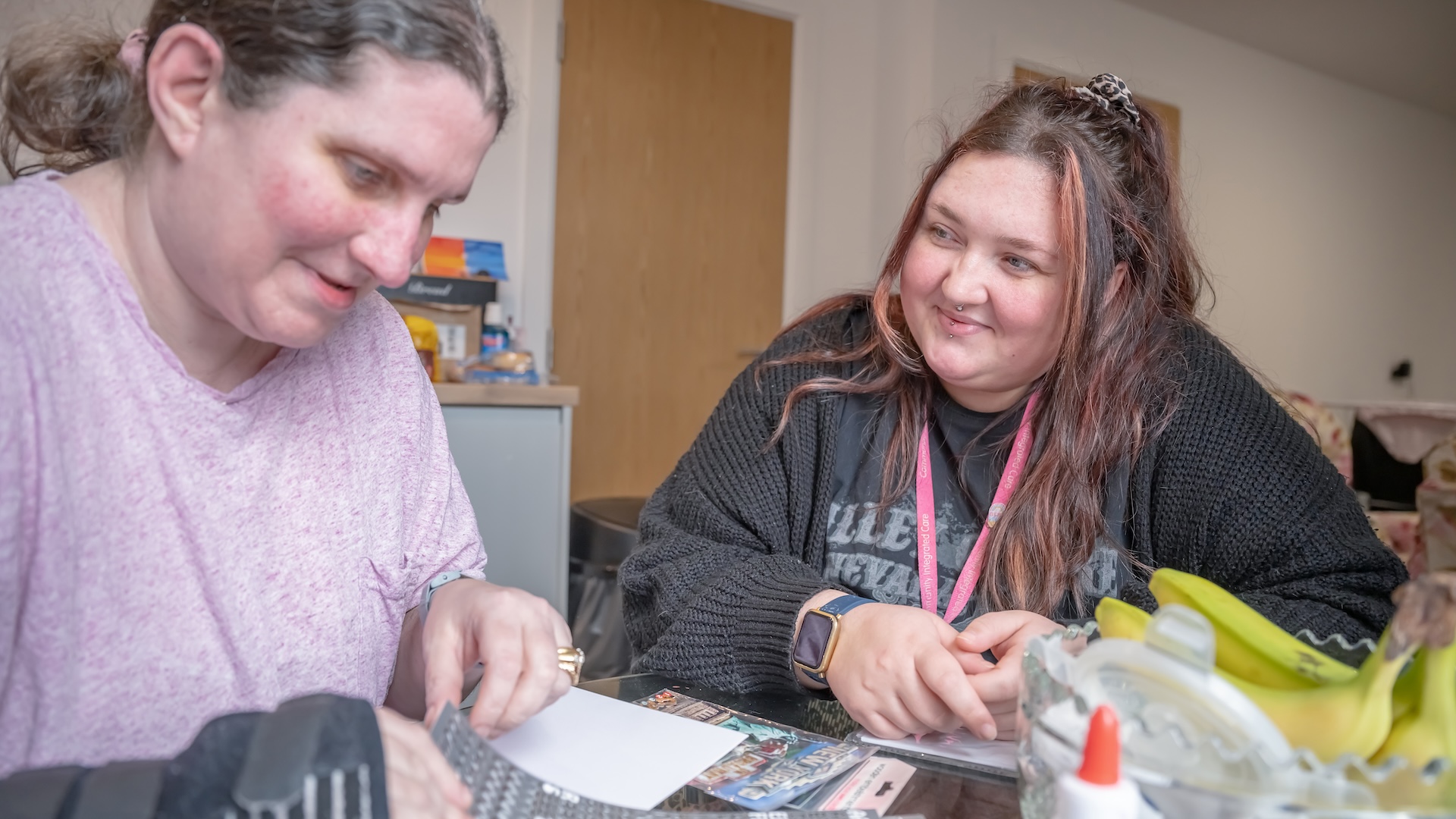“You have to take whatever is thrown your way, quite literally,” she says. “People say you can’t take work home, but you do take it home because it is not easy. It’s heavy. You shouldn’t be in the job in my eyes if you don’t take that home because, to me, that’s not a caring person.”
Bowler, who is based in the North West of England, went into support work because she wanted to care for people and make a difference to their lives.
“I have suffered with my mental health for as long as I can remember, since I was a child,” she says. “I’ve come from an unfortunate background. I never had the help I needed when I was that age, and I didn’t know where to go for advice. I didn’t have a circle of care within health services that I could rely on to help me. I’ve always wanted to give back and help people the way I needed someone.”
She faced homelessness as a teenager and was forced to sofa surf, and the threat of being plunged into a similar situation again after her landlord went bankrupt was terrifying, but she got help.
Bowler applied for a grant from the Community Integrated Care’s wellbeing fund, which provides support to staff members facing financial difficulty, such as providing household goods or cash for essential items. She received £1,000.
“It saved my life,” Bowler says. “That might sound overdramatic but honestly it saved my life. I’m still with the company. Any time I feel like I need to leave, because the pay isn’t great for what we do and there are other jobs that pay more, I always refer back to the time they really helped me.”
Advertising helps fund Big Issue’s mission to end poverty
Local authorities are responsible for adult social care. They organise support and fund the companies which administer care, but cash ultimately comes from central government, and budgets are often squeezed, meaning that wages remain low.
Community Integrated Care is calling for change. It has found that improving pay is offset by the savings it will deliver – including reducing the costs of care sector recruitment by an estimated £2.3bn and saving £1.7bn with more timely discharges from NHS hospitals.
Teresa Exelby, the chief corporate services and people officer at the charity, says: “Many social care providers are struggling to survive, so providing parity of pay is impossible without government support. However, our evidence shows that this is one of the most socially, economically, and morally positive investments that the government can make.
“Investing in fair pay for social care workers, improve the lives of people who provide and draw on social care, providing more cost-effective and sustainable care and health services, and supporting economic growth and productivity.”
Around 77% of polled MPs believe that the current rate of average pay for social care workers is unfair. More than nine in 10 MPs (92%) say social care pressures are important to their constituents, and eight in 10 MPs (80%) say that the next government should act to improve pay and conditions.
A shortfall in staff means people face long waiting lists for social care, having to pay for private care or taking on caring responsibilities themselves. This was brought into the spotlight after broadcaster Kate Garraway revealed astronomical £16,000-a-month care costs have left her in debt.
Advertising helps fund Big Issue’s mission to end poverty
The government recently announced up to £8.6bn in additional funding over two years to meet the pressures facing the sector, grow the workforce and improve hospital discharge. But after years of chronic underfunding and with council budgets depleted, charities have called for greater reform.
Exelby adds: “I am privileged to work with thousands of people who live their dream of enabling others to live theirs. But against the joy is real despair too – people working tirelessly still need the support of food banks, friends, or family, finding that they are one ordinary-life shock away from personal disaster. Access to stable care and support should be respected as a fundamental human right. Things must change.”
Bowler is settled in her new home and she still adores her job, even on the toughest of days, but the cost of living is still going up and she could not afford the essentials without taking on overtime. Some of her colleagues have kids so cannot do extra hours and are having to rely on food banks.
“I’m not in the job for the money,” Bowler says. “I’m in the job because I love it, but a pay increase would be incredible. I really do believe we get so underpaid for what we do.”
Do you have a story to tell or opinions to share about this? We want to hear from you. Get in touch and tell us more.









